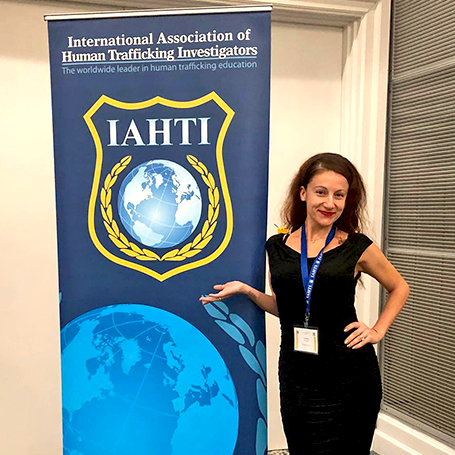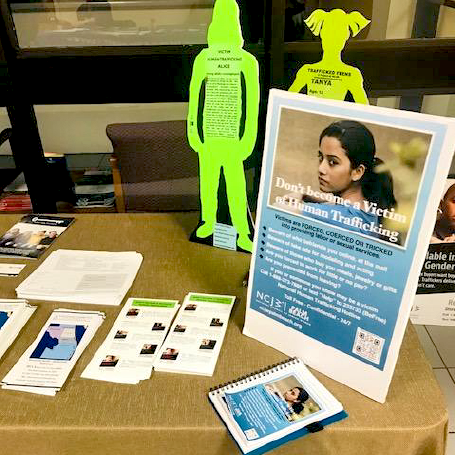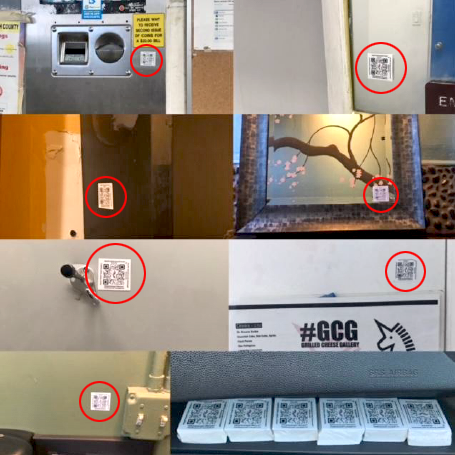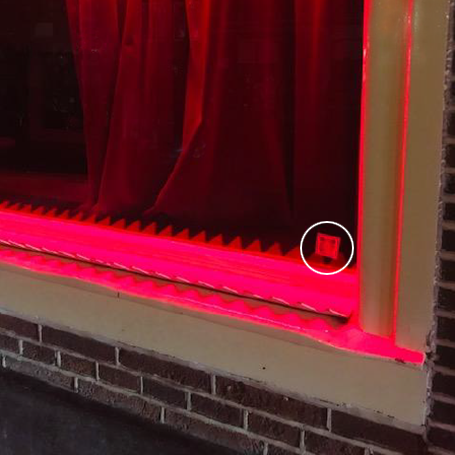Real Life Stories: People Trafficking in the U.S. (Twentyfour-Seven)
Tsvetelina Thompson is the Founder of Twentyfour-Seven, a human rights anti-trafficking organization dedicated to bringing intelligence and services to victims and survivors of sex trafficking. Tsvetelina’s story was compiled by Liluye staff writer, Sylvia Nalubega, who also writes a blog, Sanyu Centre for Arts and Rights. Sylvia’s personal message to everyone is, “We live beyond ourselves by sharing our story to hopefully impact a person.”
How did you first get involved in being part of this work? In other words, what motivated you, or still drives you, to work on the issue of trafficking? Can you share a personal story?
I got involved in the anti-trafficking movement because of my close personal experience in it. I know how it feels to lose your freedom and also know how much it meant to me getting help and gaining my freedom back. I therefore decided to use my negative experience and turn it into something positive. Through my organization Twentyfour-Seven, I am now helping others in the same situation I was in a few years ago.
What are the specific mission and goals of your organization?
Twentyfour-Seven* supports victims of trafficking to get their freedom back, by providing anti-trafficking information such as laws, helplines, an opportunity to report trafficking, and creating awareness (in multiple languages) to a victim of trafficking while still being enslaved, through our patented method, Twentyfour-Seven QR® codes of information. Our primary focus is providing information to trafficking victims and encouraging private businesses to join the anti-trafficking movement. We also work with businesses and corporations to limit their liabilities in case they end up being sued in a trafficking case.
“Up-to-date, we have placed about thirty thousand of our QR codes around the world.”
The Twentyfour-Seven QR® code tool can be used as either a supplement to an already existing, anti-trafficking program; in other words it can deliver extra, anti-trafficking information in multiple languages, or it can be printed on different materials and placed or displayed in areas where there are other materials already, such as informational posters. The codes can also be used separately, not in addition to an already existing anti-trafficking program. Either way, they are equally effective and do exactly what they were created for, providing anti-trafficking information.
*Twentyfour-Seven QR® codes do not provide services. We strictly provide anti-trafficking information, contacts, and links to service providers.
What is the severity of human and sex trafficking in your area?
According to the Florida Alliance to End Human Trafficking, Florida is the third highest state for sex trafficking, next to labor trafficking, cases. This by itself speaks volumes on how bad the situation is here.
What are the long-term implications of human trafficking, especially on women and girls?
In general, the long-term implications of human trafficking are difficult to predict, especially when there are not enough studies on how it even affects the mental health of the individuals who have been/are trafficked. The more information we have on this critical health issue, the better the opportunities for improving their (survivor’s/victim’s) lives and preventing the trauma being “inherited” or passed down to future generations. A lot of trafficking victims are a result of generational trauma. It’s also known as “intergenerational trauma” and can affect the same families for much longer than people realize.
Share with us some of the things you are doing to support survivors of trafficking, or to prevent those who are vulnerable from going through it?
Out here, there are a lot of organizations and programs providing great help and assistance to survivors. However, the efforts in prevention are quite low.
As I mentioned earlier, my team and I are primarily focused on delivering information that could potentially save a life to trafficking, while they are still being enslaved, so they can reach out to us for help. We accomplish this by utilizing our Twentyfour-Seven QR® codes nationally and internationally. We have codes in transportation hubs, hotels, motels, bars, restaurants, brothels, gasoline stations, fast food places, schools, and cabs… basically everywhere where there are or are likely to be trafficking victims.
Up to date, we have placed about thirty thousand of our QR codes around the world. On average, the codes have been scanned between 20 to 300 times a month. This means that a big number of people have access to anti-trafficking information, helpline contacts, and human trafficking awareness at the same time.
Recently you, in partnership with Liluye and Victor Lyons from Sessionwise, took part in their PTSD training. Could you explain a bit to us about your experience with this training and how you think you’ll be using it in your work?
The program was great. It improved my knowledge on how to approach and communicate better with victims and survivors. It also helped me to get a better understanding of the survivor’s emotional journey and how they can be helped in the process of healing. It is a powerful program for everyone who wants to get a better understanding of what victims, survivors, or anyone who has experienced some sort of trauma has, or is currently, going through.
I share the program with everyone I work with, and encourage them to reach out to Liluye for more information or if they have interest in participating in it.
What kind of change do you want to see as a result of your work among the survivors of trafficking, or those who are most vulnerable to it?
I am hoping for more businesses and corporations (hotels, motels, truck stops, social media, stores, transportation industry, hospitals, restaurants, and schools) to step in and join the anti-trafficking movement. These are places where the victims are most trafficked in, through, or recruited. They are also in the perfect position to be more involved and to fulfill their moral obligation to protect and assist their employees, customers, and community that they are serving.
What kind of support do you need for your work and where are you located?
I would like to help more trafficking victims by spreading the word and encouraging companies, businesses, and organizations to utilize the Twentyfour-Seven QR® codes. It’s a simple and effective anti-trafficking tool developed by survivors that provides an opportunity to free victims from trafficking, and also helps businesses to become part of the anti-trafficking movement.
In addition, everyone can support us by participating in our work, specifically by:
• Becoming part of our sales team
• Volunteering time for outreach
• Donating
• Helping with translations and anti-trafficking laws
If anyone wants to support or contact Twentyfour-Seven:
Visit Twentyfour-Seven on the web: www.twentyfour-seven.org
To find out more about Twentyfour-Seven:
Visit Twentyfour-Seven on LinkedIn: Twentyfour-Seven
Visit Twentyfour-Seven on Facebook: Twentyfour-Seven
Visit Twentyfour-Seven on YouTube: Twentyfour-Seven
For more information about Victor Lyon’s PTSD training (SessionWise), or to support his international training program, please visit: SessionWise.org.
For more information about Liluye or to inquire about becoming a partner, please visit: www.liluye.org/contact. Or, if you are interested in donating to Liluye, please visit: www.liluye.org/donate.





